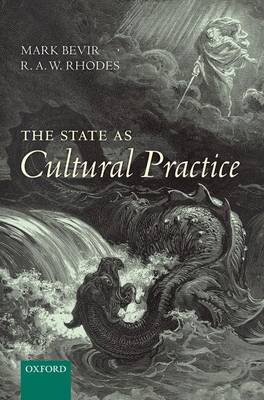
- Retrait gratuit dans votre magasin Club
- 7.000.000 titres dans notre catalogue
- Payer en toute sécurité
- Toujours un magasin près de chez vous
- Retrait gratuit dans votre magasin Club
- 7.000.0000 titres dans notre catalogue
- Payer en toute sécurité
- Toujours un magasin près de chez vous
51,95 €
+ 103 points
Format
Description
The State as Cultural Practice offers a fully worked out account of the authors' distinctive interpretive approach to political science. It challenges the new institutionalism, probably the most significant present-day strand in both American and British political science. It moves away from such notions as 'bringing the state back in', 'path dependency' and modernist empiricism. Instead, Bevir and Rhodes argue for an anti-foundational analysis, ethnographic and historical methods, and a decentred approach that rejects any essentialist definition of the state and espouses the idea of politics as cultural practice. The book has three aims: to develop an anti-foundational theory of the state; to develop a new research agenda around the topics of rule, rationalities, and resistance; and by exploring empirical shifts and debates about the changing nature of the state to show how anti-foundational theory leads us to see them differently. Bevir and Rhodes argue for the idea of 'the stateless state' or the state as meaning-in-action. So, the state is neither monolithic nor a causal agent. It consists solely of the contingent actions of specific individuals; of diverse beliefs about the public sphere, about authority and power, which are constructed differently in contending traditions. Continuity and change are products of people inheriting traditions and modifying them in response to dilemmas. A decentred approach explores the limits to the state and seeks to develop a more diverse view of state authority and its exercise. In short, political scientists need to bring people back in to the study of the state.
Spécifications
Parties prenantes
- Auteur(s) :
- Editeur:
Contenu
- Nombre de pages :
- 272
- Langue:
- Anglais
Caractéristiques
- EAN:
- 9780199604487
- Date de parution :
- 09-06-15
- Format:
- Livre broché
- Format numérique:
- Trade paperback (VS)
- Dimensions :
- 231 mm x 155 mm
- Poids :
- 408 g

Les avis
Nous publions uniquement les avis qui respectent les conditions requises. Consultez nos conditions pour les avis.






